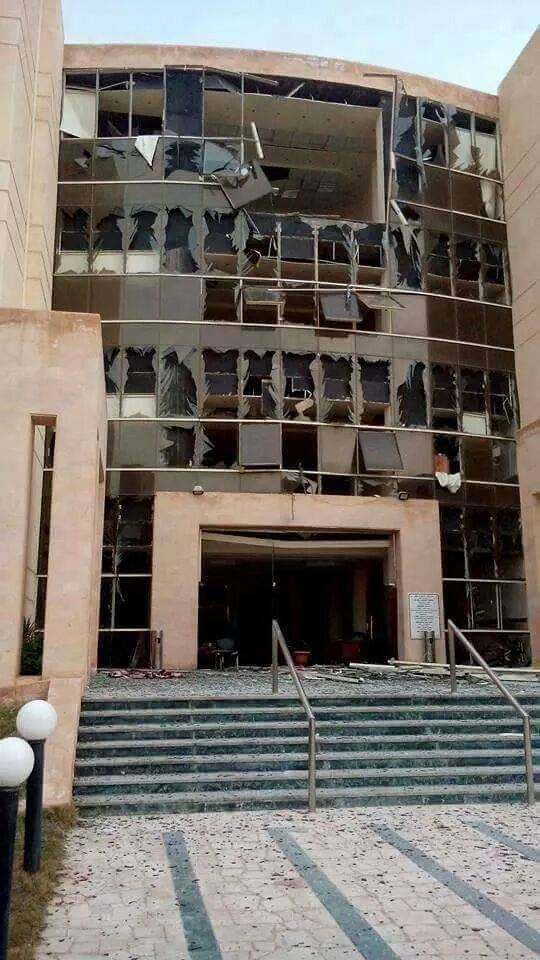خلود طالبة بكلية الإعلام في جامعة سيناء
رقية طالبة في كلية الإعلام بجامعة سيناء
We have turned to our families before going to the university as if they were soldiers on their way to a battlefield. It does not end up returning us to our homes in peace; the nightmares haunt us
يوستينا طالبة بكلية الصيدلة بجامعة سيناء
طلاب كلية الإعلام بجامعة سيناء خلال عملهم على مشروع عملي داخل الحرم الجامعي بسبب الأوضاع الأمنية
For security reasons, I can not go home every day, so I have to stay in the university town, although it usually takes only 30 minutes

سيارة عسكرية تمشط المنطقة المحيطة بجامعة سيناء في دورية روتينية